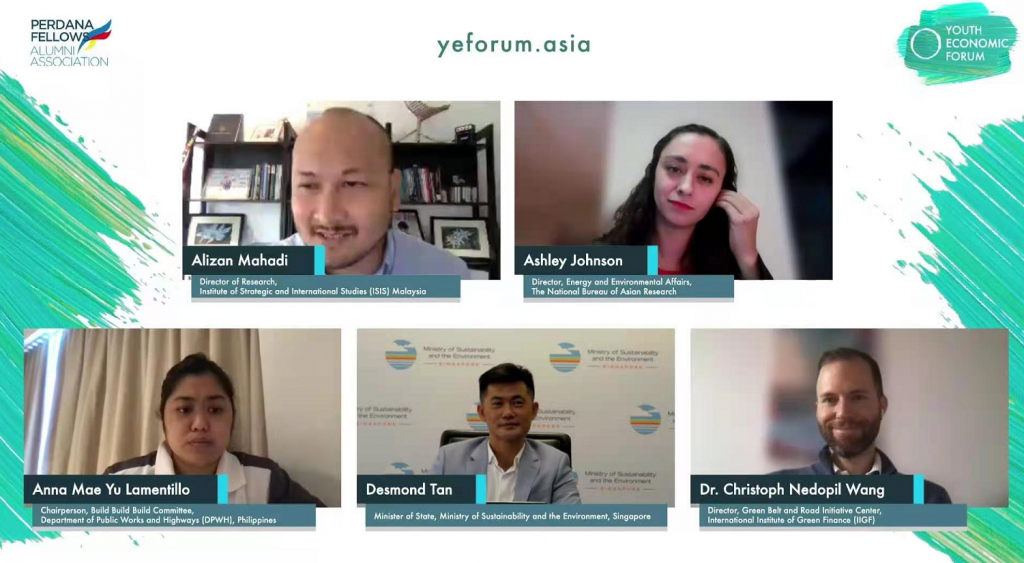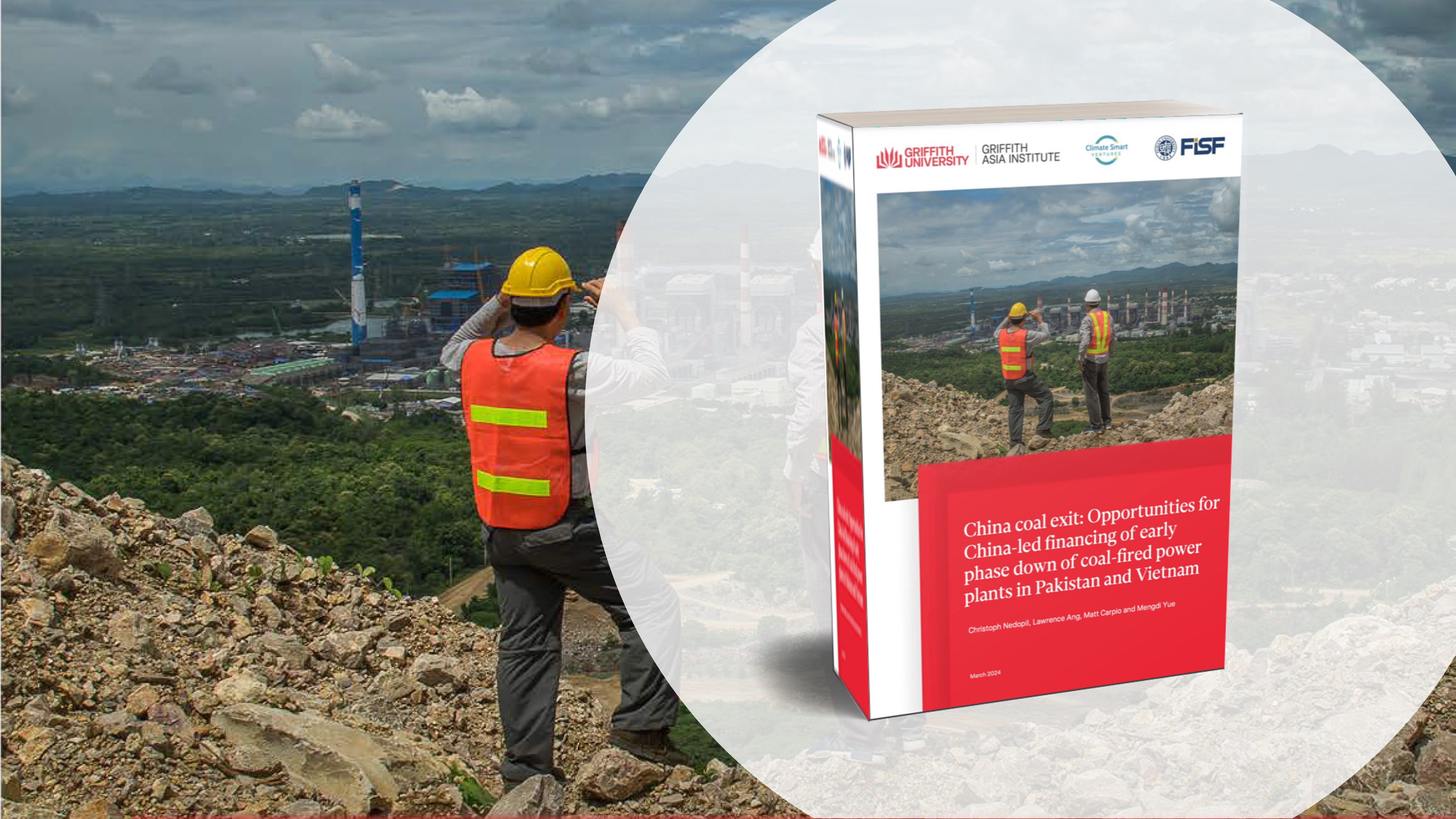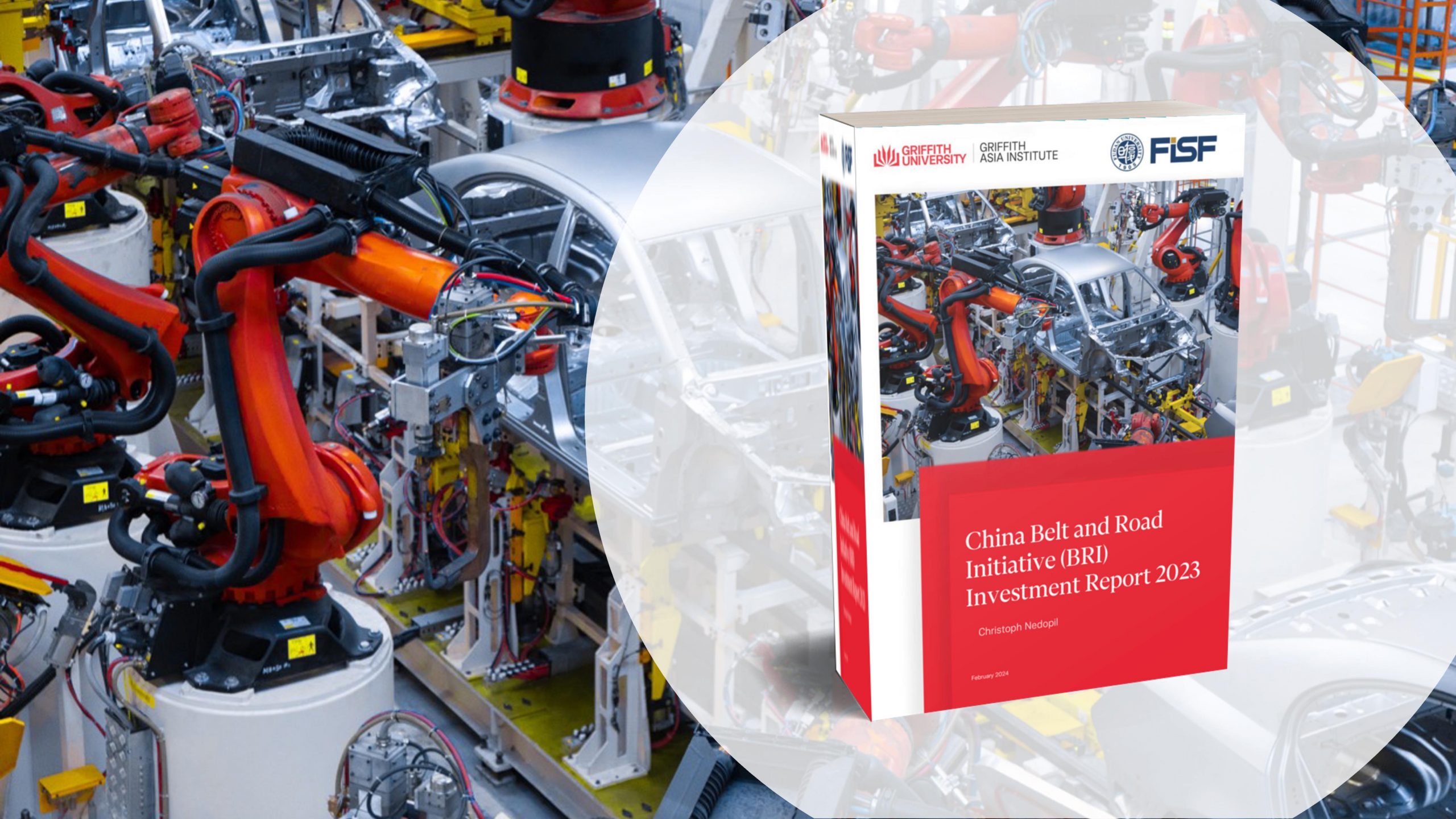We invite you to watch this year’s panel “The Green Development Agenda: A Green New Deal for Southeast Asia in the Post-COVID-19 Era?” of the Youth Economic Forum YEF that happened on March 6th, 2021.
The panel featured high-level experts, including
- Desmond Tan, Minister of Sustainability and the Environment of Singapore,
- Anna Mae Yu Lamentillo, Chairperson, Build Build Build Committee of the Philippines,
- Ashley Johnson, Director, Energy and Environmental Affairs of the National Bureau of Asian Research, and
- Christoph Nedopil Wang, Director of the IIGF Green Belt and Road Initiative Center

The panel was moderated by Alizan Mahadi from the Institute of Strategic and International Studies – ISIS and focused on whether #ASEAN countries should pursue their own #GreenNewDeal and what are the challenges to achieving sustainability and the potential solutions against climate change in the COVID-19 era.
The trade-off between economy and environment has changed from a zero-sum game to ‘green while we grow’ and even ‘green in order to grow’.
——Desmond Tan, Minister of Sustainability and the Environment of Singapore
The panel was opened with the question: Why do we need a Green New Deal and what is new? Minister Desmond Tan elaborated that the concept of sustainability has been evolving through generations from economic sustainability to sustainability that includes environment, energy, and carbon emissions. “The trade-off between economy and environment has changed from a zero-sum game to ‘green while we grow’ and even ‘green in order to grow’”. Ashely Johnson mentioned that due to different stages of development and resource limitations, what is sustainable in one country might have different definitions somewhere else.
Anna Mae Yu Lamentillo focused on recent efforts in the Philippines to build bicycle tracks to address sustainability challenges of urban transport: studies in Manila found that most people take the car for short distances, possibly due to the lack of bicycle lanes. With a renewed emphasis on infrastructure building, green infrastructure should support green transport, such as non-motorized transport.
Rather than waiting to find a perfect definition of sustainability, we need to start on the topics we understand now, the most pressing being agriculture, energy, and transport. That also means to end investments in coal-fired power plants.
——Dr. Christoph Nedopil Wang, Director of the IIGF Green Belt and Road Initiative Center
Christoph Nedopil focused on the question of how to mobilize finance to balance sustainable development plans and the recovery of the economy after the pandemic. He introduced the recent work focused on establishing a sustainable and green financial system in China and abroad, including the SDG Finance Taxonomy published in June 2020 and the Green Development Guidance for BRI projects published in December 2020. He elaborated on the challenges of measurement of financial risks associated with unsustainable development and how to finance secondary benefits through sustainability. He recommended that relevant stakeholders from the financial institutions, the finance ministries, and central banks need to collaborate to provide policy support to provide definitions of green and sustainable finance, financial incentives for investing, and relevant reporting requirements. Additionally, he emphasized that “rather than waiting to find a perfect definition of sustainability, we need to start on the topics we understand now, the most pressing being agriculture, energy, and transport. That also means to end investments in coal-fired power plants.”
Regarding the energy transition, Ashley Johnson emphasized the importance of bridging the gap between the resources and capabilities of each country. One of the solutions to make up the gap is through trade. ASEAN countries now are collaboratively working on across-border trade in electricity generated by renewable energy which is able to help cover electricity loads during peak time and non-peak time and reduce electricity loss, which also reflects the significance of collaborative political will in achieving sustainability.
Talking about how to revitalize the economy and create new jobs, panelists pointed out the importance of leaving their comfort zones, such as financing traditional polluting infrastructure projects to push growth to include green energy, green transport, and capacity building for creating green jobs.
You can watch the whole panel discussion on the YEF website: https://www.yeforum.asia/programme
ABOUT YOUTH ECONOMIC FORUM
Striving to create critical, intellectual and meaningful discourse on current issues and global trends, the Youth Economic Forum – founded in 2016 by the Perdana Fellows Alumni Association (PFAA) – aims to promote new perspectives and insights on the state of the world, the economy, and society through constructive and fact-based discussions.This platform endeavours to connect both young professionals and university students from across the Asia Pacific with participants from governments, academia, the private sector, and international organisations in an effort to collectively seek innovative solutions, increase mutual understanding, and bridge knowledge gaps.Since then, we have featured more than 100 speakers and engaged more than 2,500 young minds from Malaysia and around the region.
Lefei Chen was a researcher at the Green BRI Center at IIGF.




Comments are closed.